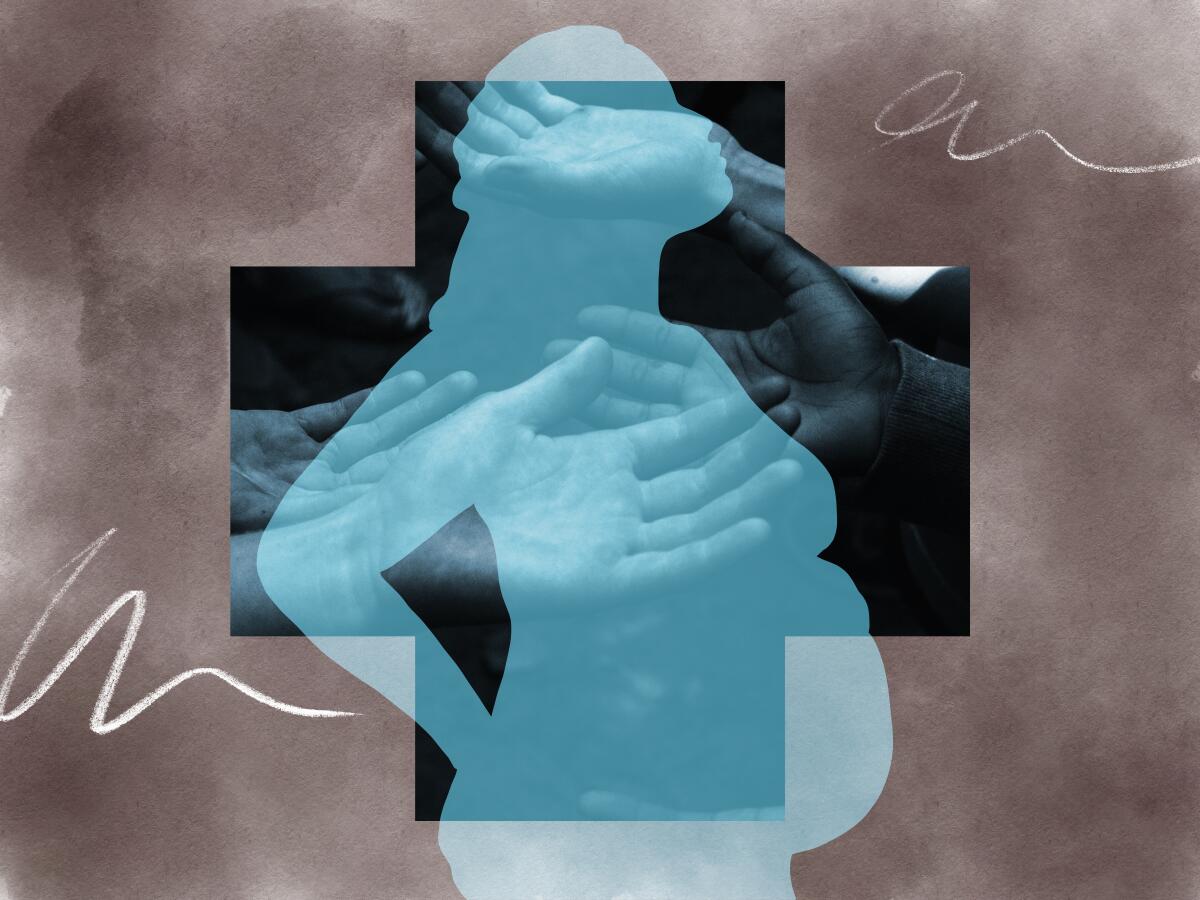Op-Ed: How to change an American medical system that harms Black maternal health

- Share via
The current state of Black maternal health in the United States is a grim indication that we as a country have lost our way.
The U.S. ranks last overall among industrialized countries with a maternal death rate of 20.1 per 100,000 pregnancies, and the rate is rising. The crisis for people of color in this country is even more acute. Despite advances in reproductive technologies and safe motherhood initiatives, hospitals do not keep Black women and people who are pregnant or recently gave birth safe during pregnancy, childbirth and postpartum.
In fact, hospital systems have willfully accepted the widening death gap between Black mothers and those in other racial and ethnic groups. The maternal mortality rate for Black women is around three times that of white women. This higher risk is shared by all Black women regardless of income, education or geographical location.
The dire statistics showing premature death and severe morbidity experienced by Black people are proof that the current systems that provide health services, education, research and policy are not working and need to be remade.
The COVID-19 pandemic has further laid bare the many flaws in these systems that need reimagining and re-conceptualizing. First and foremost, hospitals, healthcare institutions and, more specifically, places where people give birth have been ground zero for harm. Birth is an episodic event, and many forget that during the nine months that precede birth, there are many opportunities for interventions to improve outcomes and experiences that are hampered by structural racism.
One new study led by Black women community leaders and scholars, SACRED Birth, became the first of its kind to illuminate the feelings and experiences of seeking care and support while Black and pregnant during the pandemic. The study tested a novel survey with more than 800 Black mothers and people giving birth across 348 hospitals in 34 states and Washington, D.C. The survey was developed by Karen A. Scott to uncover and describe forms of obstetric racism perpetuated against Black women and people by personnel in hospitals and health systems.
It measures how Black mothers and people feel as they navigate personnel, practices and policies across seven quality areas identified by Black mothers: safety, autonomy, communication, racism, empathy, humanity and dignity. Survey items also examine how well hospitals see, value and treat Black mothers and people as human beings, worthy of compassionate, culturally relevant, responsive and rigorous care, regardless of insurance status.
Black mothers and people also prioritized kinship ties, systems accountability and holistic care as mechanisms to shield them from hospital neglect, mistreatment and discrimination, without judgment or retaliation.
The aim is to translate patient experiences into data as evidence of obstetric racism in the provision of perinatal care and services from hospital triage to discharge. The patient-centered data will be used to transform the culture of care by establishing community-driven benchmarks for advancing equity and by informing professional education and training both within and outside hospital settings.
In order for hospitals and health systems to prevent deaths, there needs to be greater partnerships with community-based healthcare providers, including doulas, midwives, and sexual and reproductive health professionals who are local and accessible. The pandemic has shown us the limitations of hospital birth settings, and pregnant people deserve high-quality options including home birth and birth centers. Finally, given that most maternal deaths occur in the postpartum period, increased home visits and reimagined postpartum care are essential components to improving outcomes.
Structural interventions beyond hospitals also influence maternal health. Insurance coverage has been shown to improve health outcomes, particularly for those of reproductive age. Any reduction in healthcare coverage, such as the dismantling of the Affordable Care Act, is likely to harm Black people and people of color most; almost half of the births in the U.S. are covered by Medicaid.
Fortunately, the 2021 Black Maternal Health Momnibus Act was recently reintroduced in Congress by the Black Maternal Health Caucus. The legislation includes 12 bills that provide funding to address perinatal mental health, workforce initiatives for healthcare provider education and training, research dollars for better data, and support for state-based maternal mortality review committees that examine every case to determine the root causes and potential places where interventions could have prevented death.
In 2019, the national maternal mortality rate for Black women was 44 deaths per 100,000 live births, more than twice the rate for white women.
Reimagining Black maternal health in the United States cannot be separated from the issue of health equity. We can’t improve outcomes without listening to, honoring and understanding the full lives and experiences of Black people.
Unfortunately, misinformation and poor science communication have combined with the defunding of public health to create harmful narratives that can reinforce racism in healthcare. There are, however, strategies that can begin to help. First, ensure that healthcare work is rooted in authentic community engagement. Second, develop pipeline programs that can diversify the healthcare workforce. One good place to start are historically Black colleges and universities (HBCUs), large producers of Black STEM graduates in the U.S. Given recent philanthropic attention to HBCUs as drivers of education and training for Black people, they could help bring about new approaches to health equity.
If we can develop and carry out programs that recognize and serve the needs and dignity of Black people, care and outcomes should improve for everyone.
Karen A. Scott is an associate professor in the department of obstetrics and gynecology at UC San Francisco and an applied epidemiologist doing research in reproductive and perinatal health, rights and justice. Monica R. McLemore is a tenured associate professor in the Family Health Care Nursing Department at UC San Francisco and a research scientist at the Bixby Center for Global Reproductive Health.
More to Read
A cure for the common opinion
Get thought-provoking perspectives with our weekly newsletter.
You may occasionally receive promotional content from the Los Angeles Times.











